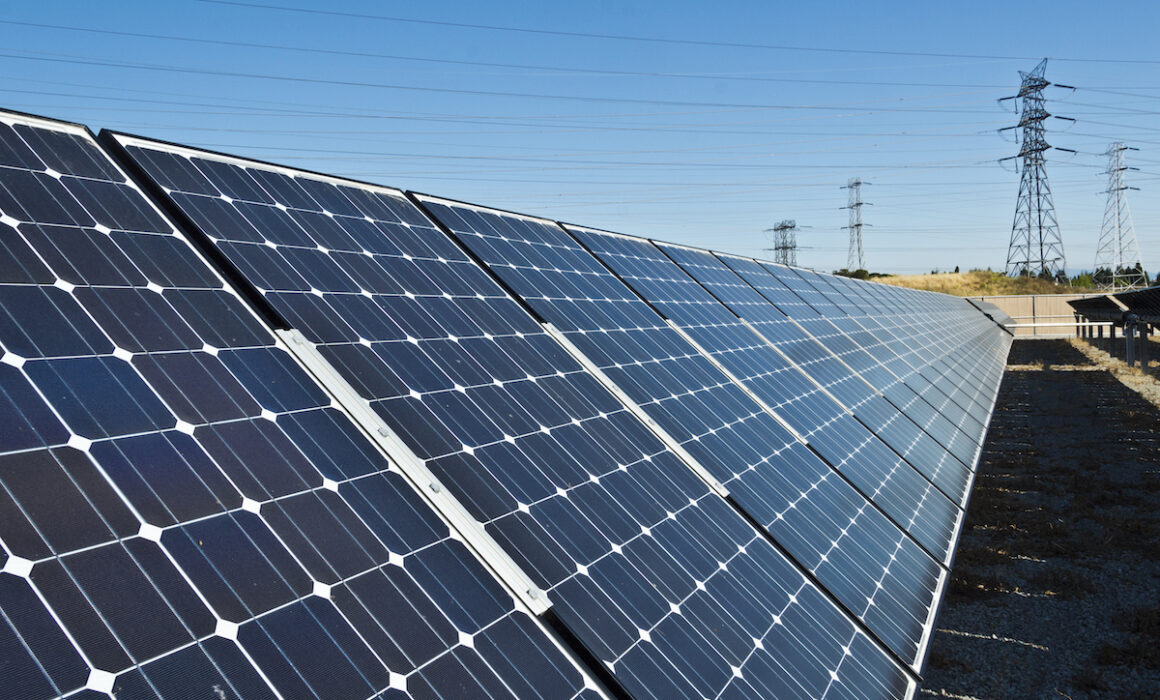A Progressive Take on Permitting Reform: Principles and Policies to Unleash a Faster, More Equitable Green Transition
August 22, 2023
By Johanna Bozuwa, Dustin Mulvaney
The climate crisis is hitting communities across the United States with increasing force—wildfire seasons become more extreme each year, hurricanes hit the Gulf Coast with more ferocity, and droughts are increasingly hurting farmers in the Midwest.
We need policy reforms that equitably accelerate build-out of renewable energy—not fossil fuels. In this report, a progressive alternative to permitting reform is outlined, one that focuses on increasing public capacity for planning, assessment, and community engagement to ignite the transition.
(Photo by Steve Proehl/Getty Images)
Introduction
A just and sustainable energy transition that keeps us in line with climate targets will require extensive build-out of energy infrastructure. Decades of delay in addressing the climate crisis mean that the United States must move at an even faster clip to deliver the renewable energy infrastructures needed to ensure a livable future. This is an enormous undertaking that will have implications for communities, landscapes, and environments across the US. The energy transition has started to proliferate throughout the country, but often still moves far too slowly to achieve climate targets. While the passage of the Inflation Reduction Act (IRA) in 2022 has provided a new influx of funding to build renewable energy infrastructure, climate advocates are now navigating how to use that funding quickly and equitably.
Some advocates believe that the fastest way to unleash the renewable energy build-out is to “cut red tape” and “reduce bureaucracy”—largely focusing on the process of reviewing and permitting projects. For example, according to Xan Fishman from Bipartisan Policy Center, “The only thing standing between us and our affordable, clean energy future is a completely broken permitting process” (Fishman 2023).
However, this claim is not reflective of the realities renewable energy infrastructure developers face. In some cases, advocates of permitting reform as a means to speed up climate mitigation conflate issues of permitting—such as reforming the National Environmental Policy Act (NEPA)—with other issues holding back the renewable energy transition. For example, many project delays stem from challenges with transmission planning or the interconnection process, which is privately managed by electric utility system operators.
What’s more, cutting what is perceived as “red tape” for the transition may mean harming the same communities that experience the burden of the existing fossil energy system. When projects—even clean energy projects—do not go through robust environmental review, they risk having negative impacts such as air or water pollution, economic burden, or biodiversity loss.
Furthermore, the oil and gas industry has leveraged the permitting discussion as “a decoy for ramping up gas” (Harris and Rock 2022). The industry has been one of the main political powers behind the push for permitting reform, using it to dismantle the US’s few safeguards against fossil fuel pollution instead of addressing the key forces that slow a transition to renewables. Much of the permitting reform proposed in Congress over the past few years disproportionately supports fossil fuel projects, and extractive industries have been primary proponents of the changes because of their increasing trouble obtaining environmental permits and approval.
Permitting reform hit the national stage in the wake of the IRA. Senator Joe Manchin (D-WV) held up the major investment package for almost a year, finally striking a deal in July 2022 with Senator Chuck Schumer (D-NY), who agreed to lower the investment package’s ambition and pass a permitting reform bill that also fast-tracked the Mountain Valley Pipeline (Snell 2022). Environmental justice advocates fought vehemently against the permitting bill, calling it “Manchin’s Dirty Deal” and criticizing it for gutting bedrock environmental laws and providing massive giveaways to the fossil fuel industry.
The environmental justice community was able to kill the “Dirty Deal” three times, but ultimately, in June 2023, a significant portion of its permitting reforms passed as part of debt ceiling negotiations. The resulting law, the Fiscal Responsibility Act of 2023, amends NEPA and limits the types of projects over which it has oversight, creating arbitrary deadlines for environmental reviews with no corresponding agency investment and increasing the ability for project developers to sue agencies. The law also fast-tracks Senator Manchin’s Mountain Valley Pipeline—a project that extends the lifetime of fossil fuels and hurts the US’s ability to meet climate targets. The law’s permitting reforms will not support a dramatic or equitable ramp-up of renewable energy, and instead will weaken bedrock environmental and procedural safeguards.
In this report, we explain what the United States must do to effectively and equitably drive the era of renewable energy. First, we define permitting and categorize the different types of permitting and review necessary for building energy-related infrastructure. Second, we articulate why focusing on permitting reform obfuscates some of the real causes of slow renewable deployment, and describe the forces we believe slow the build-out of energy infrastructure. Third, we outline principles that should underpin a just, green transition at the scale and speed needed to address the climate crisis. And finally, we offer a suite of policy recommendations that could accelerate the transition without undermining bedrock environmental laws.
The progressive take on the permitting debate with Johanna Bozuwa
Listen to the podcast Opens in new windowPolicies to Initiate the Green Transition
Enable More Coordination and Planning
- Utilize long-range land-use planning: Land managers and planners should employ comprehensive land-use planning, including the identification of lands and corridors where renewable and transmission infrastructure projects can be built rapidly, equitably, and without controversy.
- Increase transparency and accountability of processes for interconnecting renewable energy to the electricity grid: Ensure electricity grid operators’ decision-making is transparent and accountable, and that it feeds into larger planning processes (including interregional ones).
- Increase capacity of permitting agencies: Provide agencies in charge of permitting review with more staff, more effective training, and more power to move processes forward, to allow them to more efficiently and effectively review and assess projects.
- Build public renewables and transmission: Empower the federal government to deploy renewable energy and transmission infrastructure. The federal government has strong regional and interregional mandates, long-term planning horizons, and an ability to absorb financial risks, making it better able to build the regional and interregional projects needed for the transition.
- Increase material and energy efficiency: Handle the challenge of building renewable energy infrastructure fast by increasing efficiency and lowering material use to limit need for build-out.
- Support distributed energy resources: Avoid some large-scale build-out for infrastructure, such as for transmission, by deploying distributed energy resources like rooftop solar, batteries, and microgrids.
- Update the 1872 General Mining Act: Amend oversight of mining of critical metals and minerals, a crucial part of the energy transition, to include environmental protections and effective royalties, reduce mining waste, and ensure community consent.
Enhance Community Participation and Consent
- Strengthen the National Environmental Policy Act (NEPA): Strengthen community participation early in the permitting process to make it more likely that projects will move forward faster, without as much community opposition.
- Respect tribal sovereignty: Engage federally recognized and unrecognized Indigenous communities in negotiations regarding land stewardship and build trust in nation-to-nation negotiations on new energy infrastructure early on.
- Apply cumulative impact analysis: Evaluate the total burden on health, well-being, and quality of life that comes from an additional project in a neighborhood.
- Provide community benefit: Provide community benefits from energy projects, like jobs, discounted energy, local infrastructure investments, and even direct ownership to receive a portion of the profits.
Empower a Just Transition
- Stop all new fossil fuel permits: Stop all new fossil fuel permits, and include with any change in permitting an express ban on new fossil fuel infrastructures incompatible with climate action goals.
- Protect communities from fossil fuel pollution: Increase setback limits for oil and gas wells and retire fossil-fueled peaker plants near communities, shutting down the energy infrastructure that’s most harmful to the environment and public health first.
- Set emissions reduction targets to phase out fossil fuels: States and the federal government can and should set ambitious and legally binding emissions reduction targets to hasten renewable energy deployment.
Related Resources
Choosing between Environmental Standards and a Rapid Transition to Renewable Energy Is a False Dilemma
Read the brief Opens in new windowA Justice-Centered Vision for Permitting Reform
Read the blog post Opens in new windowAmerica’s Clean Energy Transition Needs Federal Action—Not Rollbacks
Read the blog post Opens in new windowAuthors
Johanna Bozuwa
Johanna Bozuwa is the executive director of the Climate and Community Project. Her research focuses on extraction and fossil fuels, energy justice and democracy, and the political economy of transitions.
Dustin Mulvaney
Dustin Mulvaney is a professor in the environmental studies department at San José State University and member of the Climate and Community Project. His research focuses on the social and environmental dimensions of commodity chains and production systems, particularly on emerging technologies and environmental change.



